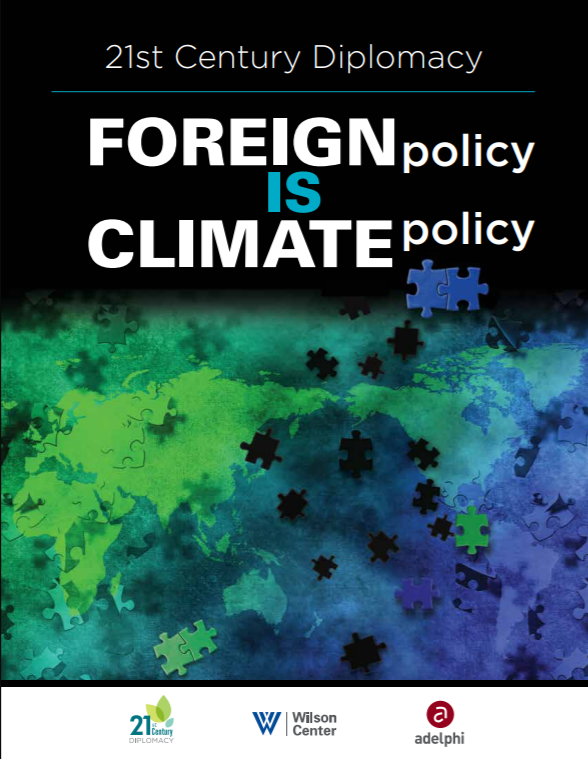
The linkage that has received the most attention is the connection between climate change and security problems. Scholars have studied environment-security dynamics for decades and, in recent years, both the climate studies and the security studies communities have explored this linkage: This exploration has been a two-way street. Moreover, this recognition of climate-security linkages has crossed over from the scholarly and analytic worlds to policy communities.
For example, UN Secretary-General Antonio Guterres has emphasized that climate change is “an aggravating factor for instability, conflict and terrorism.” In October 2021, the U.S. government released a suite of reports to elevate climate change as a policy priority in US foreign and security policy.
Unfortunately, in most policy discussions on climate change and security, gender perspectives are missing in action.
This is not to say that gender issues have been ignored by everyone. Since the mid-1990s, feminists, gender scholars, and women’s rights activists have worked to advance understanding of gender-climate and gender-security issues, and they have established that these linkages are powerful. They have also pushed for policy actions.
Their efforts have led, in particular, to the adoption of the UN Security Council Resolution 1325 on Women, Peace and Security (WPS) in 2000 and nine subsequent WPS resolutions in the 2000s and 2010s. National governments have adopted National Action Plans (NAPs) to integrate and implement WPS priorities in national security policies.
Starting in 2013, gender has been integrated into the UN Framework Convention on Climate Change (UNFCCC) by requiring annual reporting on the gender composition of state delegations and UNFCC-constituted bodies.
In October 2021, the US Government released its the first-ever National Strategy on Gender Equity and Equality, which emphasized the importance of elevating gender equality in humanitarian relief and security issues as well as promoting the link between gender equity and climate change responses.
Women’s rights activists have also pushed the UN Commission on the Status of Women (CSW) to make climate change and disaster risk reduction a priority theme at its 66th session in March 2022.
All of this is significant progress.
The problem is that almost all of this effort has come from gender champions—gender scholars, analysts, and activists: It has been a one-way street. For example, the gender equity and equality priorities developed in the U.S. gender strategy were not included in the suite of reports released by the U.S. government on foreign and security policy.
Two decades into the 21st century, gender issues are still routinely ignored by the security policy and climate communities. This has profound policy implications because security policies and climate actions tend to be high-priority and relatively well-funded endeavors. This is where the action is, in terms of policy attention and resources.
Related publication:
For too long, foreign policymakers have largely left climate issues to energy or environment ministries. A new essay series by adelphi and the Wilson Center seeks to change that.
Read more
Even relatively simple and visible commitments—such as ensuring gender balances in policymaking bodies and national delegations—have been poorly implemented. At the COP26 conference in Glasgow in late 2021, for example, women’s representation across the meeting’s sixteen constituted bodies was only 33 percent. The seriousness of policy commitments can also be measured by the amount of resources governments allocate to these commitments. In 2018, only 22 percent of WPS NAPs had allocated budgets, and disturbingly, average budget allocations for WPS NAPs are on a downward trend since 2014. Few countries have introduced gender budgeting—that is, allocation of specific resources to gender priorities and initiatives. A final problem is a worldwide lack of effort to collect sex-disaggregated data across an array of social, economic, political, environmental, and security issues.
The security and climate policy communities tend to be comprised of people—mainly men—who are almost completely lacking in gender expertise or even gender policy awareness. As a result, the gender dimensions of security and climate issues are usually not understood, prioritized, integrated, or even considered in security and climate policy packages. It follows, of course, that gendered risks and dangers—affecting more than 7.8 billion people around the world—are not being adequately addressed.
The sad irony is that this gender-obliviousness has tremendous implications for stability and security. Gender scholars have established—in one of the most important social science findings of the past two decades—that gender inequality is strongly associated with instability and conflict, both within and between countries. Gender scholars have also shown that gender factors will be critical to the development of effective adaptation and mitigation policies, as climate change progresses. Ignoring gender, therefore, is misguided not just in terms of gender outcomes, but for security and climate outcomes as well.
The gender-security and gender-climate connections—as well as the triple nexus of gender, climate and security—need to be developed more systematically. To date, the gender studies community has taken the lead in studying these connections and developing policy ideas. The security and climate communities need to recognize that they have a stake in these connections as well, and they need to become proactive in developing gender-focused initiatives. And it is not enough to talk the talk: policymakers have to follow through with policy implementation and gender-targeted budget commitments as well.
This blog is based on Chantal de Jonge Oudraat and Michael E. Brown’s contribution to 21st Century Diplomacy: Foreign Policy is Climate Policy, Gender, Climate Change, and Security: Making the Connections.
Chantal de Jonge Oudraat is a Wilson Center Fellow in the Environmental Change and Security Program (ECSP). She was President of Women In International Security (WIIS) from 2013 to 2021.
Michael E. Brown is a Professor of Political Science and International Affairs at the George Washington University Elliott School of International Affairs. He was Dean of the Elliott School from 2005 to 2015.
This article was originally published on newsecuritybeat.org










